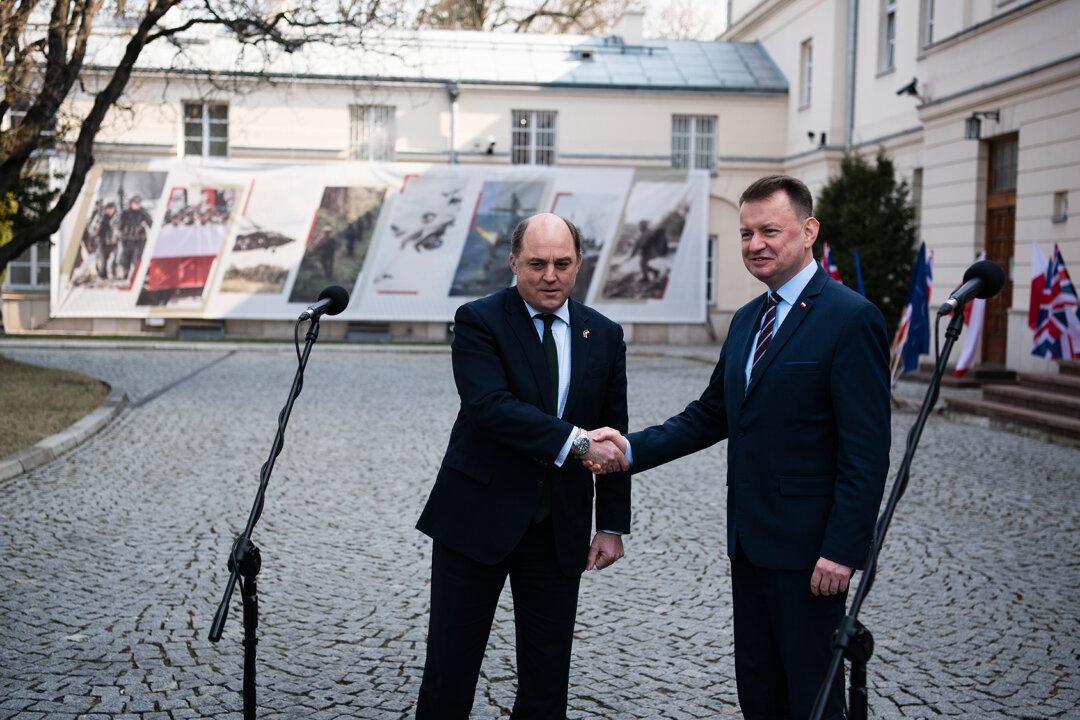British defence minister Ben Wallace said the UK will deploy its Sky Sabre missile defence system in Poland as NATO moves to bolster its eastern flank in light of the Russia–Ukraine war.
“We are going to deploy the Sky Sabre medium-range, anti-air missile system to Poland with about 100 personnel to make sure that we stand alongside Poland, protecting her airspace from any further aggression by Russia,” Wallace said at a March 17 press conference in Warsaw.





